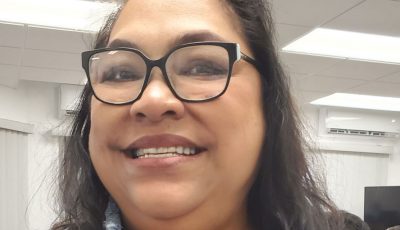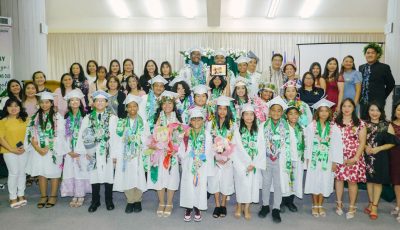SHEFA to use prevailing wage and work assessment study to update priority fields
The Saipan Higher Education Financial Assistance board will use the CNMI Prevailing Wage & Workforce Assessment Study 2014 to identify the needs for its incentive grant for scholars under its “priority field of study” program.
As it is right now, some board members believe that SHEFA regulations governing the priority field of study are too broad, with too many fields of study.
This grant is an incentive program that seeks to encourage Saipan students to pursue college degrees that are highly needed on the island such as in the education and the healthcare field.
However, with growing businesses and the transitioning of contract workers before 2019, majority of the job market will lean toward the hotel side of developments.
SHEFA chair Oscar Babauta said that SHEFA has been holding off with many of the programs and now with the prevailing wage and workforce assessment, it will be put to better use.
SHEFA board member Ursula Aldan said that it is necessary to start changing the priority fields and that the study can help with the board members.
Babauta said that he and SHEFA chair for program and development committee, Raymond Muna, will be working closely on this issue.
Since last year, SHEFA board members have been tabling the idea of changing the priority fields to fit into today’s priority listing in jobs. Aldan will also be working closely with this as she is the chair for SHEFA’s committee on policy and procedure.
SHEFA’s policy and procedure committee is seeking their input on the current types of field of study needed in today’s workforce.
“SHEFA’s goal is to update SHEFA’s priority fields list so it corresponds with the Commonwealth workforce needs,” SHEFA administrator Merissa Rasa said.
SHEFA’s latest snapshots on data for student majors under its programs for Fall 2013 and Spring 2014 showed that majority of the students pursued social sciences and fine arts.
Social sciences and fine arts include arts, communications, political science, psychology, social work, and journalism. For fall 2013 and spring 2014 semesters, 25 percent went to social sciences and fine arts, 24 percent to education, 16 percent to medical and allied fields, 12 percent to business administration/management, 9 percent to criminal justice/law enforcement, 4 percent to computer science, 2 percent to accounting and economics, and 2 percent to tourism and hospitality.
With new hotel developers such as Best Sunshine International, Ltd., Alter City Group, Honest Profit, and other hotels reinvesting for improvements; students taking up fields in hospitality, economics, tourism, and accounting are at its lowest but ironically caters to these specific developers.



























